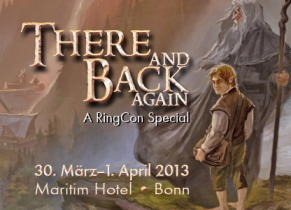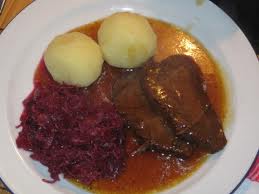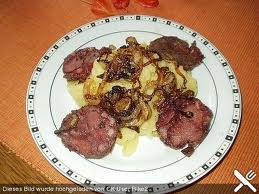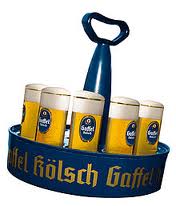Help invite Richard Armitage to Bonn, maybe?
 At reader request, I’m linking to the FB questionnaire of RingCon, regarding whether they should invite Armitage or Martin Freeman to HobbitCon in April, 2013.
At reader request, I’m linking to the FB questionnaire of RingCon, regarding whether they should invite Armitage or Martin Freeman to HobbitCon in April, 2013.
Ten other dwarves are already confirmed, so why not Thorin? And something like ten readers of this site are attending the event, and of course they have a preference — and are asking for your support. And you know it’s hard for me to say “no” to a warm-hearted German.
The question asked, translated from the German, is “Out of pure curiosity: If you had the choice, who would you like to see at “There and Back Again”?”
How ’bout supporting our German fangirl content and just going over there and voting? You know you want to.
***
Next question: if he is invited, what can we use an incentive get him to go there?
I will concede that I am more of a Lower Saxony chick — that’s where I’ve spent the majority of my German time — and I’ve only been in Bonn, which is in North Rhine-Westphalia, three times. I have flown into Düsseldorf frequently, though (and spent a tense day there once, trying replace a stolen passport), and I love Cologne (can you say: thirteen medieval churches? OMG).
OK, but this was about Bonn.
Despite my lack of familiarity with Bonn, I can say the following things about the city that could be an incentive for anyone to go:
 The Kunst- und Ausstellungshalle der BRD
The Kunst- und Ausstellungshalle der BRD
1. Excellent museums.
I saw an exhibit at the Kunst- und Ausstellungshalle der BRD about the Renaissance in 1998 that I still remember with great pleasure. When the Guggenheim exhibits in Germany, this one of the places it comes. There’s also a solid and quite popular history museum, the Haus der Geschichte, which focuses on the history of the Federal Republic of Germany (BRD) in the years of division (1945-89). No worries, Mr. Armitage, if I recall correctly they have everything captioned in English as well. And I bet we could find you a local tour guide who’d translate everything you wanted to read.
Possibility for German fans — organize an exhibit on the history of German automative traditions featuring BMW. Which is a Bavarian brand, but didn’t all the Bonn politicians and all the terrorists drive them nonetheless?
 2. Roll over, Beethoven, Armitage is coming.
2. Roll over, Beethoven, Armitage is coming.
Bonn is famous as the birthplace of Beethoven. Armitage occasionally refers to liking Beethoven, no?
There’s a museum, too, with an archive and research center. Like all “composer birthplace” museums, it’s small, but it’s the kind of museum I could see Armitage enjoying — atmospheric and suggestive rather than wordy or pedagogical. They have Beethoven’s piano, too. Not that they will let Armitage touch it. Or any other mortal. For understandable reasons.
3. History.
If you like twentieth-century history, Bonn was the capital of West Germany (the version of the BRD before 1989) and although much of the capital administrative and political work has moved to Berlin, parts of the German government are still there, and the buildings, which were designed as a representative architecture for a newly democratic postwar state, are all still there and in good shape. I walked through that quarter of the city once, possibly also in 1998. I can remember exactly who I was with and what we talked about.
4. Jogging along the Rhine.
This was my favorite part of every visit I’ve made to Bonn — walking along the Rhine river. If you like, you can also take a river boat trip, which is very popular, and then drink your way up and down the Rhine instead. Historically, the Rhine has been a central thoroughfare of European commerce since, well, since there has been European commerce. There’s Rhine wine to enjoy (those grapes grow a bit further south on the Rhine, though, but they swim northward) as well as the Cologne local beer, Kölsch, a warm-fermented lager that’s not as bitter as the beers from further north in Germany. I am not a big fan of Kölsch but I do enjoy Rhine wines.
Above: A “ring” of a very widely-distributed Kölsch, Gaffel Kölsch. You could drink it easily in Berlin, for instance, and my local bar in the U.S. often has this on tap. This is a traditional serving tray — the glasses are small and thin, and they fit into indentations in the tray. While I’ve heard the traditional procedure for drinking these described (the waiter keeps coming back till you put a coaster over your empty cup to say you don’t want another), I’ve never seen that, or seen a waiter actually use the handle, either. Perhaps German readers would also let us know if the waiter is called a “Köbes” in Bonn, too, or if that’s just Cologne.
In any case, sorry, Cologne fans, I don’t especially like Kölsch. I prefer Altbier, which is the Düsseldorf local beer of choice. I’ve been able to get Ürige Alt and Ürige Sticke at my local on tap, but it’s really expensive.
Are you getting confused about the geography here? All these cities are close to each other and although they developed distinctive culinary traditions in the Middle Ages, these days there’s a lot of mixing (and a lot of non-natives living in Bonn, anyway, because of the government).
We’ll let Armitage jog along the Rhine because you know he likes food, and well, the food in Bonn, it’s not … not … light.
5. The food, which would be my main reason for going. Forget the museums.
So, what does the Bonner eat? When s/he’s eating traditionally?
The average German eats bread, sausage and cheese for both breakfast and supper, so these are things you’d be more likely to eat for a main meal, usually the midday mail, or particularly Sunday dinner as they are fairly bombastic, heavy dishes. But they’re all good.
 Sauerbraten with potato dumplings and Rotkohl. I don’t think of red cabbage as a Rhenish thing, however.
Sauerbraten with potato dumplings and Rotkohl. I don’t think of red cabbage as a Rhenish thing, however.
We’re probably all familiar with Sauerbraten — beef roast (or sometimes horse roast — if you’re not fundamentally averse to this, you should try it at least once, it’s not bad) — bottom round marinated for several days in red wine vinegar and some combination of the typical German aromatics (juniper berries, bay leaves, peppercorns, cloves, and so on). After braising, the roast is cooked in the marinade. Once done, the sauce is thickened with the crumbs of a spicy German cookie with a taste like gingerbread (there are many varieties from Aachener Printen to Lebkuchen); raisins are added, and the roast is served with potato dumplings and applesauce. Fantastic. Nap-inducing. Oh, and those potato dumplings are a pain to make. If you eat them outside of a restaurant, kiss the cook afterwards. They’re a lot of work to make successfully. Aside from the potatoes this dish is said to be very old, dating perhaps from the days of Charlemagne.
But oh, so tasty. Armitage, you will LOVE it.
 Typical presentation of Himmel und Erde. You usually get just a little bit of blood sausage.
Typical presentation of Himmel und Erde. You usually get just a little bit of blood sausage.
Something my parents liked a lot when I took them to Cologne — I’ve only eaten this once or twice because it’s not kosher, but I like it anyway — “Himmel und Erde” or “heaven and earth.” It’s a combination of blood sausage, mashed potatoes, and cooked apples or apple sauce. The potatoes are the earth, and the apples are the heaven part. (There’s an obscure pun going on here regarding the Rhenish word for potato, which was Erdäpfel — or literally, “earth apple.” Get it? It’s not a very old dish just because potatoes didn’t become a major element in the German diet until the late seventeenth / early eighteenth century when territorial rulers started pushing their cultivation.) Sometimes it has crisp-fried onions on top as well. I know, you say, ick, but really, it’s very, very tasty. Then again my grandparents made their own blood pudding, so I may be prejudiced. Also extremely heavy.
I’m not sure if Armitage would like this — depends a bit on how adventurous he is as an eater, but if he eats black pudding he shouldn’t have any issue with it.
I bet Mr. Thornton ate black pudding.
And for a quick snack: potato pancakes, or Reibekuchen, as they are called ’round there, are available everywhere. (I can testify that if you get out of the train in Cologne to see the cathedral, there’s a very convenient stand between the station and the church if you need sustenance.) This particular regional variant is a lot like a latke, as the grated potatoes are still visible and bound together with egg and flour (hence the literal name, “grated cake”).
Finally, if you need something to eat while having a beer, the usual choice is a rye bread roll with a slice of Gouda on it, or “Halver Hahn,” which actually means “half a rooster,” and I used to know the story behind that, but I’ve forgotten. Usually served with a sour pickle round or some raw onions.
German readers can feel free to write in to complain that this discussion of Bonn cuisine is imprecise. Please be kind and remember that I’ve never lived in Bonn. Ask for a disquisition on the varieties of Butterkuchen available in the triangle between Bremen, Emden, and Hamburg, and I’m your girl.
Shoot. Kuchen. Cake. Reisfladen. OK, another time. But yeah, they have cake in Bonn, too!
Non-German readers can consider helping to get the vote out. Vote HERE!
And Armitage can start thinking about whether his schedule will allow a trip to Bonn.
Aren’t you tempted, Mr. Armitage? Just a little? I saw a candid of a very young you with a very pretty girl and an Imperial pint once. You were looking at the girl. But weren’t you thinking about the beer?







Oooh! I had Himmel und Erde when I was an exchange student in Germany — long, long ago. Yummy, although nobody mentioned what kind of sausage it was and it tasted fine to me.
I went over and cast my vote for inviting RA to Bonn. I’ve never been there (on that trip, I spent 3 months in Osnabruck) but I hope those fans get their wish.
LikeLike
yeah, I honestly think if you didn’t know it was a blood sausage you wouldn’t care. It’s a bit intense and soft, I guess. It’s not like black pudding, the color of which is a bit disturbing.
LikeLike
oh, and on behalf of Germany, thanks for voting!
LikeLike
Oh, Bonn. I have been there several times and like the town and remember school trips (with annoyed teachers) and a nice historical convention there, which left me enough time to get to see the Beethoven house. The beer glasses are a bit small for my Bavarian taste, but otherwise, Bonn is o.k. ;o)
LikeLike
I know, 0,2. That’s like, a swallow! *dodges readers from the Rheinland*. Actually here in town they also sell Altbier in 0,2 glasses.
LikeLike
Ths post is wonderful becuase adoration of Germany is visible in every single line of text. Germany has always been a transit country meaning somehwere you drive through to get to other places (maybe apart from Berlin), so maybe it’s time to meet the neighbours a little closer? Bonn in April sounds charming!
Oh and German food? Despite appearances, still lighter than American 😉
Anyway, I voted for Freeman. Ony joking 😉
LikeLike
yes, I am a big fan of Germany. Like anything one loves, it is not perfect, but Germany has lots to love, and I’ve been so enriched by the time I spent there. (I like Poland, too, but I don’t know much of it — only Stettin, Wroclaw, Krakow — sorry, always forget the current spelling of the first city — and haven’t spent any time to speak of there.)
re: American food — I know you lived in NYC, but I don’t know what your broader experience of US food is. I would say: it depends on which US food you are eating. The way I grew up eating is basically meat / potato / vegetable, but I wouldn’t describe it as heavy, really.
Thanks for voting 🙂
LikeLike
Thank you so much Servetus for that lovely blogpost!!!!
And thank you all out there for voting!!!
LikeLike
My thanks also to all who voted.
LikeLike
Reblogged this on Unkraut vergeht nicht….oder doch? und kommentierte:
Ich bin total gerührt über diesen englischen Blogpost – danke schön Servetus!!!!
Und danke an alle, die ich “genervt” und die mit abgestimmt haben – ihr seid die Besten!!! 🙂
LikeLike
Hehe, well, while I applaud your effort and your post, I secretly do not believe that German “cuisine” is going to attract many foreigners to Germany… Heavy stuff, even though I love it. But then I *am* German and literally have the stomach for all that starchy, sauce-y, meat-heavy food… Are you familiar with “Kohl und Pinkel”, Servetus, coming from more or less the area in Lower Saxony that you described in your post???
As regards Bonn – a cute little town, much better suited to NOT being a capital city. The “Haus der Geschichte” is one of the best history museums I have ever seen. Very well done, entertaining and relevant, summarising the history of the Federal Republic from 1945 to 1989. I was in tears by the end of the course that takes you through the decades… Mind you, this was the pet project of then-Chancellor Helmut Kohl (who held a doctorate in history) and hence received plenty of funding and many resources.
Oh, and one additional attraction that Bonn has to offer: It apparently has the largest, continuous city quarter consisting of houses built in “Gründerzeit” style (sort of around the beginning of the 20th century). It is that architecture of sugary-sweet, turrety and highly decorated facades, little balconies here and bay windows there, all on leafy streets. Very pretty!
If Armitage came to Bonn, I would actually fly in and squat at my friends’…
LikeLike
re: making German cuisine attractive — you have to get people to try it. One of the most popular restaurants in my last town was a contemporary German cuisine place. Key is — start with smaller portion sizes than are usual, don’t drown everything in gravy, it looks unpleasant, and make sure that the ingredients are the best available. German food lives or dies on the quality of the ingredients because it is so lightly seasoned. Missing flavor can’t be covered up with garlic or spices or melted cheese. All that said, Himmel und Erde (or Labskaus, that Hamburg favorite) are not things I’d make for a German food newcomer. If Armitage was serious about liking “clean” food (a remark he made fairly early on), there’s no reason he wouldn’t like most German food.
I have a bunch of Grünkohl mit Pinkel stories. Also not kosher, but something I have eaten off and on and like. The typical German diet is sort of hard on the kosher observer …
re: Haus der Geschichte — probably my favorite contemporary history (Zeitgeschichte) museum is in Leipzig. But we’re quibbling at a high level. Museums in Germany are amazing institutions — well curated, effectively presented, and telling about their materials at a high level of sophistication. A “bad” museum in Germany is still usually better than 75% of museums in the U.S.
LikeLike
Oh, ya, the kosher issue I had not thought of. Labskaus? Yummy, but definitely not nice to look at. – You find German food lightly seasoned??? Hm, you haven’t lived in the British Isles then (sorry, UK-ladies). 😉 Mind you, I think that is all a thing of the past and spices and herbs have made an entrance everywhere.
Must keep that Leipzig museum in mind for a visit some time!
LikeLike
well, my frame of reference is Mexican, Indian, Thai. So yeah, I do 🙂
LikeLike
Voted! 😀 I’d love to go and visit Beethoven’s birthplace, after all I visited the house where Mozart was born earlier this year so it’s only fair that I should go and visit Beethoven’s as well!They’re my favourite composers!
LikeLike
Thanks for voting! I like that Mozart museum, too and Salzburg is just a sweet place.
LikeLike
Dear Servetus, thank you so much for your support and the lovely blogpost!!! And of course a big thank you for everybody who voted for him!!! We’d really be thrilled to bits if Richard would attend the Hobbit Con -OMG!
What wonderful incentives for him you’ve found, if that doesn’t convince him ;-)! And of course as the king of the dwarves he just can’t let the others go on the quest to Germany all on their own- they’d surely be lost without their leader 😉 !
LikeLike
You’re welcome. If they invite him, let me know and I’ll post about it again. An idea just occurred to me. The trick is getting him to *see* the post.
LikeLike
Hi there,
I lived in Bonn for a year a long time ago…. and have been back in the last few years. Its a nice quiet slighly boring city – I would say its great to live in (can cycle to meet your friends, not much traffic, not too big, child friendly, lots of parks and museums) but not necessarily a dynamic place to visit, certainly not compared to Berlin, Hamburg etc etc, if you’re an unmarried childless person.
Also I’m not a big fan of German food… even though I’m married to a german who cooks a lot…its quite salty and fatty,,,
LikeLike
that’s my impression, too. The description for it in the 80s was “Bundesdorf,” which suggested that it was a lot like a village. If Armitage is as boring as he says he is, he might like it. I agree it’s certainly no club central.
Some German foods are high in fat, but to be fair to Bonn, I have to point out that neither Sauerbraten nor Himmel und Erde are very fatty. The bottom round is a very lean roast — it gets its tenderness from marinating for several days, and usually Himmel und Erde is served with a tiny portion of sausage (I’ve never had it with as much sausage as is pictured above — it’s usually two small slices). And the amount of salt is up to the cook. Reibekuchen is fatty, but that’s true of any fried food. It was interesting to me in thinking about this that there’s no “typical” sausage associated with Rhenish cuisine (as opposed to Saxon or Nuremberg or wherever). There are also German roast meat dishes that are very fatty (I’m thinking of the Bavarian love for Schweinhaxen, e.g. or Eisbein in Berlin), but that’s not Rhenish.
LikeLike
Oh ,I would love to go there!
PS: red cabbage! yummy! :)…plus all those meat and souses!
My Mom cooks in this style, we love German,Austrian,Hungarian and Czech meals.
LikeLike
You like Hungarian cuisine? What kind of Hungarian meals does your Mum cook?
LikeLike
Hi Judit! :).hmmm.. where to start?…stew(Gulias?),noodles(galuska?),Lecso(with eggs), Toltott paprika(mmm:))palacsinta(with white cheese and dill?)
bean soup,goulash soup,potato dumplings with plums..yumm!:)
LikeLike
Glad you like Hungarian food! 😀
LikeLike
Sad news:
RA and Martin Freeman as well won’t be there.
But nevertheless I want to say THANK YOU again for the help and support!
LikeLike
I’m sorry it didn’t work out — but hope you have fun in Bonn nonetheless!
LikeLike
I hope that too, but I think I will
LikeLike